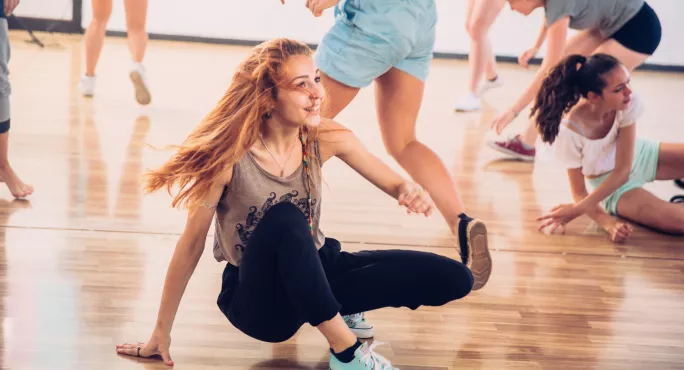We all knew that this academic year would be a significant challenge. There can’t be a single teacher in Scotland, and indeed the world, who hasn’t had a sleepless night considering the many implications that Covid-19 has on our teaching practice.
Spare a thought, though, for teachers of practical subjects, like myself, who appear to be at the bottom of considerations for the educational consequences in this challenging and complex situation.
We had been back teaching for six weeks before guidance from Education Scotland was published. Despite early indications that schools would be back “as normal” from 23 June, it took 12 weeks for Education Scotland to share any sort of advice on how best to conduct these practical activities safely. The long-awaited guidance states that “young people should not engage in drama” and then goes on to say, “this does not mean that these activities cannot take place at all, it simply means an alternative approach should be taking to providing such lessons”.
Related: ‘How can it be fair to teach in the dark for 12 weeks?’
Coronavirus: Schools still safe to open full-time, says Sturgeon
Before Covid: Is the curriculum stifling pupils’ love of the arts?
Some schools have taken this as printed and are not allowing practical drama to take place. Advice includes ensuring speaking volume is kept quiet. Have those Education Scotland writers worked in a room of 20-plus secondary students planning and preparing to perform? What’s more, it advises working outside where possible. Good luck in the Scottish winter and in finding an appropriate space that isn’t already being used by PE, who have also been taken outside for all of their lessons.
Coronavirus: What about teaching practical subjects?
At the time of writing, we are still waiting on confirmation from the Scottish Qualifications Authority (SQA) as to what the impact will be on senior phase courses. As the practical exam window generally runs from February to April, we are in a state of limbo.
For drama candidates, 60 per cent of their overall grade is examined in that window. If we take the latest note from the SQA that its changes will be published in early October - and factor in the October holidays - that leaves drama candidates, as well as dance and music, roughly 16 weeks to prepare for the biggest portion of their exam. This will place exceptional pressure on both teachers and students to adjust and prepare. Contrast this to other subject areas who do not have this component - we face a serious equity issue.
To conclude, here is another irony to consider. Dance, drama and music were included in the March cancellation of SQA practical exams. In John Swinney’s 16 September statement about support for practical subjects, these subjects were also included. In the Education Scotland publications on 21 September, they are also referred to as practical. Yet, these subjects are not given official practical status, which includes capping class sizes at 20. Despite the publications stating that these subjects are practical and the repeated requests for social distancing, we still have classes of up to 30 - including in the senior phase - often squashed into inappropriately sized rooms.
I can’t help but feel let down by the Scottish government, Education Scotland and the SQA. I particularly feel for probationer teachers and those in single-person departments. We all knew this year would be a year like no other, but it’s hard not to feel like the teachers and students of practical subjects are taking the brunt of it.
Kirsty Ferns is a faculty head of performing arts in Scotland


